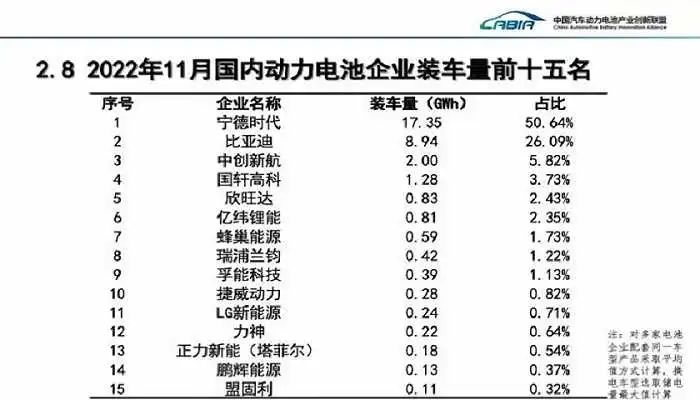in january 2022, the national development and reform commission and the national energy administration issued the guiding opinions on accelerating the construction of a national unified power market system, proposing to achieve the goal of "full participation of new energy in market transactions" by 2030. with the promotion of power market construction, more and more regional power markets are throwing olive branch to new energy. at present, new energy still faces a series of problems and challenges when participating in the power market. how to improve the design of market mechanism and improve the adaptability of the power market to new energy is the key to further promote the entry of new energy into the market and deepen the reform of power marketization.
current situation and challenges of new energy participating in power market
at present, more than two thirds of provinces and regions in china have allowed new energy to participate in power market transactions in the market rules. among them, gansu, shanxi, mengxi, shandong and other provinces have carried out many positive explorations and practices in the new energy participation in the spot market. however, there are still many provinces that have not clearly defined the market dominant position of new energy or have not carried out substantive market transactions only by issuing rules. according to relevant statistics of china electricity council, the overall proportion of new energy participating in the market will be only about 30% in 2021. at present, new energy mainly faces the following challenges when participating in power market transactions:
for new energy, the income after participating in the power market will face greater uncertainty risk. at present, the main power of new energy units in most provinces is still consumed through the "quantity and price guaranteed" power grid enterprises. after participating in market transactions, new energy units need to compete with coal, gas and other types of units on the same platform, facing the risk of market price fluctuations or inability to clear. in addition, the output of new energy has a certain randomness and volatility, and medium and long-term forecasts often have large deviations. after entering the market, it is necessary to bear the assessment or balance costs caused by this part of forecast deviation electricity. at present, some provinces require that the medium and long-term contracted electricity of new energy should not be lower than the specified proportion, which further increases the operational risk of new energy enterprises. under the dual pressure of "price and volume risk" and "deviation risk", the subjective willingness of new energy enterprises to participate in the electricity market is low.
for other entities, the cost recovery channel of conventional power supply is still not smooth, which is difficult to support the demand for large-scale new energy development. the development of new energy needs to rely on conventional power supply to provide capacity and flexibility support. because of the zero marginal cost characteristics of new energy, on the one hand, the development of new energy will squeeze the power generation space of conventional power sources such as thermal power and reduce their utilization hours; on the other hand, it will also lower the overall price of the power market and reduce the unit generation revenue of conventional power sources. in the spot market transaction of shanxi electric power in march 2022, the market clearing price was zero for 17 consecutive hours. under frequent low prices, it is difficult for conventional power supply to complete fixed cost recovery only by relying on the electric energy market, and it is difficult to guarantee the adequacy of system capacity. in addition, in the current auxiliary service market, the varieties of transactions that adapt to the characteristics of new energy output need to be enriched, the flexibility value of conventional power supply has not been fully reflected, and the long-term incentive mechanism to support the development of flexible resources needs to be further improved.
discussion on relevant mechanism of new energy participating in power market
(1) enhance the flexibility of trading varieties and expand the market electricity adjustment space
for medium and long-term transactions, the flexibility and liquidity of medium and long-term electricity trading varieties should be enhanced. in terms of transaction time scale, increase the medium and long-term transaction frequency, and introduce short-term electricity trading varieties with ten day and day as the trading cycle. in addition, it is not appropriate to impose the minimum electricity ratio for new energy to participate in medium - and long-term transactions. the medium and long term forecast of new energy has a large deviation. if the minimum proportion of medium and long term transactions is required, new energy units will bear a high risk of electricity default, which will greatly affect the enthusiasm of new energy units to participate in the market.
for spot transactions, there is no need to design complex transaction varieties under the centralized market mode, but the real-time market clearing frequency can be further increased. the centralized spot market adopts the method of full electricity clearing, and the dispatching agency forms a power generation plan according to the quotation of the market subject. the new energy units do not need to frequently adjust the trading electricity according to the forecast results, so there is no need to set complex trading varieties. at present, the spot market pilot in china mostly takes 15 minutes as a clearing period, while the u.s. pjm and australian power markets have achieved rolling clearing of the real-time market every 5 minutes. in the future, the real-time market clearing frequency needs to be further increased to provide more accurate supply and demand price signals for flexible resources and other market entities.
(2) improve the new energy pricing assessment mechanism and ensure the reasonable income of new energy
in terms of price mechanism, in the near future, new energy can be promoted to enter the market through price difference contracts and other means. under the target of carbon peaking and carbon neutralization, china still needs to take more effective measures to promote the investment and development of new energy. therefore, the contract for difference mechanism can be adopted at the initial stage to give new energy power generators stable income expectations. for incremental units, priority can be given to promoting them to sign price difference contracts to participate in the market, and the price of price difference contracts can be determined through competitive bidding. for units in stock, attention should be paid to the connection and continuation of previous policies, such as considering the purchase price before entering the market as the price difference contract price. for the determination of electricity quantity, the contracted electricity quantity can be determined as the reasonable utilization hours of the whole life cycle at the initial stage, and the settlement can be guaranteed. in the long term, with the construction of a new power system, it will gradually promote the formation of all new energy grid prices through marketization.
in terms of deviation assessment, the new energy deviation assessment mechanism can be appropriately relaxed to reduce the risk of deviation assessment. due to the uncertainty of output and the lack of regulation ability, the output deviation of new energy units is often large. the deviation assessment of new energy can be relaxed to a certain extent to avoid excessive losses of new energy caused by overly strict market assessment mechanism. however, relevant regulatory mechanisms should be set up to prevent arbitrage of policy space for new energy utilization and distortion of market transactions. at the same time, it is still necessary to set up a certain assessment and incentive mechanism to improve the accuracy of new energy output prediction and reduce prediction errors.
(3) improve the construction of market system to provide support for new energy to participate in the market
first, improve the transaction mechanism of the ancillary service market to ensure the flexibility of the system. further enrich the varieties of auxiliary service transactions, and introduce transaction varieties that adapt to the output characteristics of new energy, such as moment of inertia, fast frequency response and climbing; improve the price mechanism of auxiliary services, and reflect the opportunity cost of units through joint clearing of auxiliary services market and electric energy market; we will improve the cost mitigation mechanism for ancillary services, and allocate relevant costs to users and other market entities in accordance with the principle of "who benefits, who bears".
second, establish a capacity guarantee mechanism to ensure long-term power generation adequacy. in the near future, a more convenient capacity compensation mechanism can be used to directly differential compensate the cost recovery difference of various units; with the gradual maturity of the power market, a more complex capacity market mechanism can be established in the long term to ensure the system capacity adequacy in a market-oriented manner.
third, establish a risk aversion mechanism and improve the market risk management ability. on the one hand, improve the market information disclosure mechanism to provide information reference for market players to make timely and accurate market decisions, and also help market players to actively respond to the system demand caused by the fluctuation of new energy output, so as to ensure the safe and stable operation of the system; on the other hand, explore the establishment of electric power financial derivatives market, carry out relevant financial and insurance product research and development, and provide risk avoidance means for new energy entering the market.
source: southern energy watch



